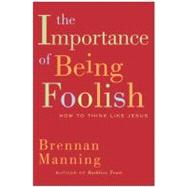
| Acknowledgments | v | ||||
| Introduction | vii | ||||
| Part One: The Way We Live | |||||
|
3 | (34) | |||
|
37 | (20) | |||
|
57 | (26) | |||
| Part Two: The Mind of Christ | |||||
|
83 | (14) | |||
|
97 | (20) | |||
|
117 | (34) | |||
| Part Three: The Power of the Cross | |||||
|
151 | (24) | |||
| Epilogue: The Revolution | 175 |
The New copy of this book will include any supplemental materials advertised. Please check the title of the book to determine if it should include any access cards, study guides, lab manuals, CDs, etc.
The Used, Rental and eBook copies of this book are not guaranteed to include any supplemental materials. Typically, only the book itself is included. This is true even if the title states it includes any access cards, study guides, lab manuals, CDs, etc.
The gospel narrative of the cleansing of the temple is a disconcerting scene (John 2:13–22). It presents us with the portrait of an angrySavior. The meek Lamb of God who said, "Take myyoke upon you, and learn from me; for I am gentle andhumble of heart" (Matthew 11:29), has fashioned ahomemade whip and begun tearing through the temple,overturning stalls and showcases, thrashing the merchantsand roaring, "Get out of here! This isn't Wal-Mart. You will not turn sacred space into a shoppingexcursion! You liars! To visit the temple is a sign ofreverence for my Father. Get out of here!"
What is even more disconcerting is Jesus's relentlesspassion for the truth. In our society, where money,power, and pleasure are the name of the game, the bodyof truth is bleeding from a thousand wounds. Many ofus have been lying to ourselves for so long that our comfortingillusions and rationalizations have assumed apatina of truth; we clutch them to our hearts the way achild clutches a favorite teddy bear. Not convinced?Consider the man on his third luncheon martini quotingthe Apostle Paul about a little wine being good for thestomach; or the "liberated" Christian's vehementdefense of the nudity in The Last Tango in Paris, the violencein Pulp Fiction, or the oral sex scene in My PrivateIdaho, because they are "integral to the plot and tastefullydone"; or the upstanding church deacon who overlookscheating and manipulation in his business dealingsbecause "it's the only way to be competitive"; or wholechurches in which the delirium of guiltlessness is reality,the mastery of biblical exegesis is holiness, the size ofthe congregation is proof of its authenticity, and on andon. There is no limit to the defenses we contrive againstthe inbreak of truth into our lives.
The painful question we face in the church today iswhether the love of God can be purchased so cheaply.The first step in the pursuit of truth is not the moral resolutionto avoid the habit of petty lying—howeverunattractive a character disfigurement that may be. It isnot the decision to stop deceiving others. It is the decision to stop deceiving ourselves. Unless we have thesame relentless passion for the truth that Jesus exhibitedin the temple, we are undermining our faith, betrayingthe Lord, and deceiving ourselves. Self-deception is theenemy of wholeness because it prevents us from seeingourselves as we really are. It covers up our lack ofgrowth in the Spirit of the truthful One and keeps usfrom coming to terms with our real personalities.
Many years ago I witnessed the power of selfdeceptiondramatically reenacted in the alcoholic rehabilitationcenter of a small American town. The scene(which is excerpted from my earlier work The RagamuffinGospel ): A large, split-level living room set onthe brow of a hill overlooking an artificial lake.Twenty-five men, all chemically dependent on alcoholor drugs, have gathered. Croesus O'Connor, a recoveringalcoholic, is the head honcho—a trained counselor,skilled therapist, and senior member of the staff.He summons Max, a small, diminutive man, to sit alonein the center of the U-shaped group. Max is a nominalChristian, married with five children, owner and presidentof his own company, wealthy and affable, giftedwith a remarkable poise. O'Connor begins the interrogation:
"How long you been drinking like a pig, Max?"
Max winces. "That's not quite fair."
"We'll see. Let's get into your drinking history. Howmuch per day?"
"Well, I have two Marys with the men before lunchand two Martins when the office closes at five. Then. . . ."
"What in God's name are Marys and Martins?"Croesus interrupts.
"Bloody Marys—vodka, tomato juice, a dash ofWorcestershire—and Martinis—extra dry, straight up,ice cold, with an olive and lemon twist."
"Thank you, Mary Martin. Go on."
"The wife likes a drink before dinner. Got herhooked on Martins years back." Max smiles. "Youunderstand that, right, guys?" No one responds. "Wehave two then and two before bed."
"Eight drinks a day, Max?" Croesus inquires.
"That's right. Not a drop more, not a drop less."
"You're a liar!"
Max is not ruffled. "I'll pretend I didn't hear that.Been in business twenty-eight years. People know myword is my bond. Built my reputation on veracity, notmendacity."
"Ever hide a bottle in your house?" asks Benjamin, aNative American from New Mexico.
"Don't be ridiculous. Got a bar in my living room asbig as a horse 's ass. Nothing personal, Mr. O'Connor."Mary Martin is smiling again.
The Importance of Being Foolish
Excerpted from The Importance of Being Foolish: How to Think Like Jesus by Brennan Manning
All rights reserved by the original copyright owners. Excerpts are provided for display purposes only and may not be reproduced, reprinted or distributed without the written permission of the publisher.